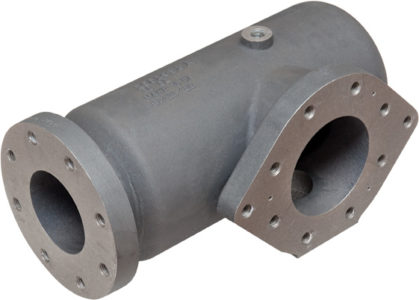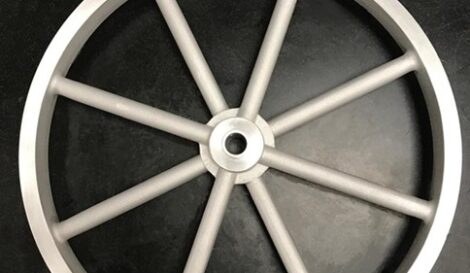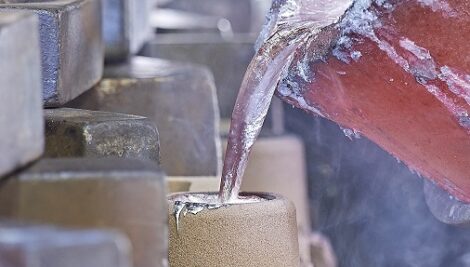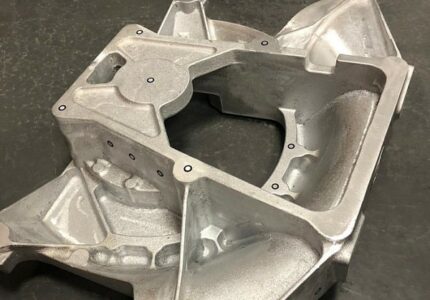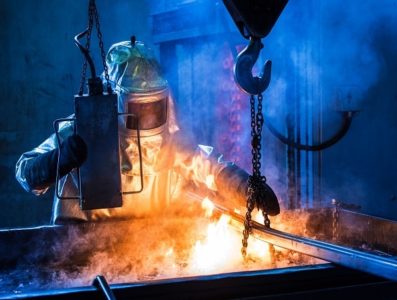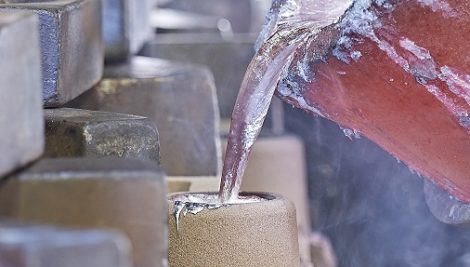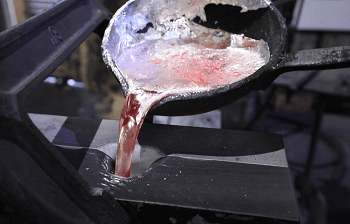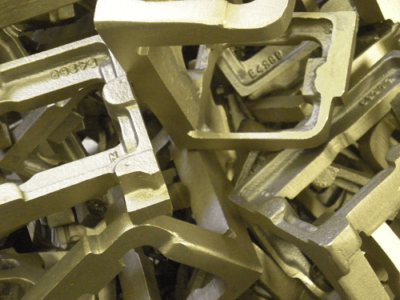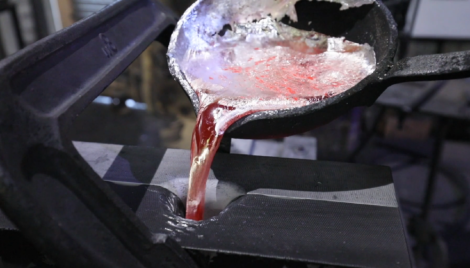Metal Passivation – what it is and how it is used in metal casting
Metal Passivation – what it is and how it is used in metal casting Passivation is a process used to protect metals against corrosion by creating a protective oxide layer on the surface of the metal. The objective is to shield reactive metals from damaging chemical reactions by creating an inert, or passive barrier between...
Converting fabricated wheels to castings frees up welding capacity
Supply Plus Limited designs, manufactures and distributes a range of high quality, professional safety and fuel delivery equipment, including a mobile hose reel that has the capacity to hold up to 200m of 70mm lay flat hose. The design incorporates two wheels that were formally fabricated in-house. Due to the success of the hose reel...
The rise and rise of aluminium as a casting material
Aluminium is one of the most important raw materials used in metal casting due, in part, to its combination of versatility, relatively low weight, and high strength. It is used in castings across a wide range of industries from aerospace to automotive and electronics to renewable energy. At NovaCast aluminium is one of the primary...
Constant refinement and improvement in motorsport
Working with motorsport manufacturers is a pleasure for our design engineers. There’s always a keen focus on engineering excellence, innovation and performance with pressure to refine the casting further each time. This bell housing for one of the UK’s leading race car manufacturers is sand cast in Aluminium casting alloy LM25TF (Heat Treated Casting to...
NovaCast: A single-source solution for both ferrous and non-ferrous castings
As any Design Engineer involved in the design for cast metal components will know, the selection of the metal alloy and casting process they will specify can be a complex process. Ultimately, for the Design Engineer, the specification must take account of parameters such as weight, yield strength, toughness, ductility, weldability, elasticity, shear, and thermal...
The Use of Fluxes in Aluminium Casting
At NovaCast, a large proportion of our castings are produced using Aluminium alloy. The formation of Aluminium Oxide and the presence of non-metallic inclusions, collectively known as dross, is an inherent part of the casting process and one that must be managed to achieve the highest quality castings. For many years, part of the foundryman’s...
The Difference Between Gravity and Pressure Die Casting
Die casting is one of the most widely used casting processes but what is the difference between Gravity Die Casting and Pressure Die Casting? Both are casting processes used by NovaCast, so we are well placed to explain the differences and discuss the selection criteria. Both forms of Die Casting employ a metal mould into...
Aluminium Bronze in Metal Casting
The use of Aluminium Bronze in Metal Casting is widespread as it is a remarkably versatile alloy, conforming to the requirements of BS1400, and created when Aluminium is added to Copper as the primary alloying element with smaller amounts of Nickel and Iron to boost corrosion-resistance. Various grades of Aluminium Bronze are available with the...
The case for Gravity Die Casting
There are many different casting processes and each has its place. The inherent characteristics of each make them ideal for a particular component geometry, performance requirement, alloy choice, production run or tolerance within specification. Gravity die or permanent mould castings use a Cast Iron or Steel mould consisting of at least two parts. The most...
